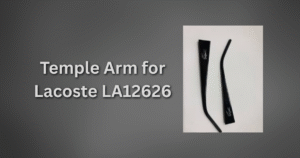Mixer Called for Soaps Mulcificer
Essential machinery in the soap-making sector, a mixer known as a soaps mulcificer combines several raw ingredients into a uniform, high-quality mixture. Making soaps demands accuracy, and the mixer guarantees even distribution of oils, lye, smells, colors, and other additives. Without adequate mixing, soap can have differing textures and quality, hence causing uneven products. This is why companies and even little producers depend so much on particular soap mixers or mulcificers.
Importance of a Soap Mulcificer in Production
Designed to manage the emulsification process—that is, combining liquids typically incompatible, such oils and water-based lye—a mulcificer can manage this process. This guarantees that the eventual soap batch will be smooth. Speed and precision are very important in mass production, and a mulcificer lets manufacturers get consistency in every batch. It enhances the final grade of soap bars or liquid soaps, reduces errors, and saves time.
Types of Soap Mixers Available
Different soap mixers are used depending on the scale and goal of production. While some are meant for little artisanal soap producers, others are sturdy factory machines. Every variety fits particular needs in soap manufacturing with its own qualities and uses.
Small-Scale Mixers
Home-based or small companies will find these small mixers perfect. Being cost-effective, simple to use, and less maintenance demanding Making small batches of personalized soaps calls for them exactly.
Industrial Soap Mixers
Industrial-grade mixers are sometimes found in use by big companies. These are strong machines intended to rapidly handle huge volumes of soap ingredients. Often equipped with sophisticated features including temperature regulation, automatic mixing cycles, and safety devices.
Planetary Mixers
Because of their quick mixing ability, planetary mixers are much used in the soap industry. Multiple blades rotating in different directions guarantee an even and complete ingredient mix.
Working Mechanism of a Soap Mulcificer
The theory of emulsification underpins the operating mechanism of a soap mulcificer. Into the mixing chamber, where the blades spin at great speed to mix them, oils and lye solution are poured. The mixer guarantees the mixture’s creamy texture and the absence of lumps. The machine will determine whether other functions—such heat systems—should be integrated to keep the right temperature during mixing.
Benefits of Using a Soap Mixer
Using a soap mulcificer offers many benefits that improve the production process. Consistent quality and composition of every soap batch is ensured by one of the major advantages, which is consistency. Another advantage is efficiency as the device cuts down on human labor and speeds up output. Furthermore, it improves safety because handling oils and lye by hand can be dangerous but a mixer provides greater process control.
Choosing the Right Mixer for Soap Production
The scale of your soap-making business will help you to pick the appropriate mixer. A basic mixer might be sufficient if you are a beginner or running a tiny business. An industrial-grade mulcificator is, however, necessary if you are making many soap. One should always take capacity, power, upkeep, and budget into account prior to buying anything.
Maintenance of Soap Mixers
Proper upkeep of a mixer guarantees efficiency and longevity. Regular cleaning of the machine is vital as left-behind soap residue may solidify and impair performance. Following the manufacturer’s maintenance instructions, inspecting blades for wear and tear, and lubricating moving parts will help to prolong the life of the device.
Safety Precautions When Using Soap Mixers
Working with mixers always demands safety since the soap-making technique uses dangerous materials like lye. Essential procedures include donning protective gear, making sure the machine is appropriately grounded, and adhering to directions. Industrial mixers often have automated shut-off capabilities and safety locks to help avoid incidents.
Soap Mixers in Artisan Soap Making
Artisan soap manufacturers place a high premium on originality and inventiveness in their goods. They use mixers to strike a balance between creativity and uniformity. Employing a mulcificer lets them explore textures, colors, and perfumes while guaranteeing the ultimate product meets quality standards.
Modern Innovations in Soap Mixers
Technology has added sophisticated capabilities in soap mixers. Programmable settings, automatic ingredient dispensing, and digital displays for process monitoring abound among today’s mulcificers. These developments not only streamline production but also increase accuracy and minimize waste.
Cost Considerations of Soap Mixers
The price of a mixer changes on its characteristics and size. While large industrial mulcificers are costly but are an investment for long-term production, small-scale mixers are inexpensive and perfect for startups. Before buying, producers have to consider the return on investment.
Soap Mixers and Environmental Impact
Growing in significance is sustainable soap manufacturing. Many contemporary mixers seek to conserve waste and energy. Businesses can help to create ecologically friendly production by using energy-efficient mulcificers while still keeping efficiency.
Common Problems with Soap Mixers
Like any other piece of equipment, soap mixers might encounter problems like overheating, blade wear, or erratic mixing. Most of these issues can be fixed with regular maintenance and timely servicing. Selecting good equipment from reliable brands can also lower the likelihood of regular failures.
Future of Soap Mulcificers
As technology keeps developing, soap mulcificers’ future looks bright. Soon, automation and artificial intelligence may be incorporated into soap mixers for even more accuracy and effectiveness. Smart machines could also help minimize human involvement in dealing with dangerous materials, therefore increasing both the safety and the productivity of the process.
Conclusion
In both minor and large-scale soap manufacturing, a mixer dubbed soaps mulcificer is an essential piece of equipment. It guarantees consistency, safety, and effectiveness in the process of producing premium soaps. Rising technology and sustainability cause modern soap mixers to become more sophisticated and eco-friendly. Selecting the appropriate mulcificer is absolutely vital for success in soap manufacturing regardless of whether you are a small artisan soap maker or part of a major industrial company.
FAQs
-
What is a mixer called for soaps mulcificer?
A soap mulcificer is a machine designed to mix oils, lye, and other additives in soap-making to ensure consistency and quality. -
Why is a mulcificer important in soap production?
It is important because it ensures proper emulsification of ingredients, saves time, and improves safety during production. -
Can small businesses use soap mulcificers?
Yes, small-scale mixers are available that are affordable and easy to use for home-based or small businesses. -
What are the common problems with soap mixers?
Some common issues include overheating, blade wear, and uneven mixing, which can be prevented with proper maintenance. -
Are modern soap mixers environmentally friendly?
Yes, many new models are designed to be energy-efficient and reduce waste, making them more sustainable for soap production.














Post Comment